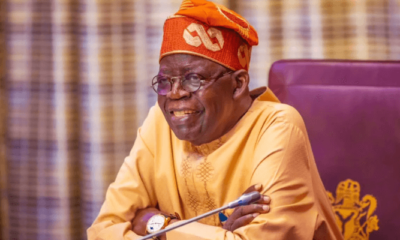Democracy & Governance
Nigeria’s Path Forward: Addressing Unemployment, Politics, Economy, and Other Key Sectors -By Muh’d Jamiu Ridwan Elepo
Tackling insecurity issues, including terrorism, banditry, and communal conflicts, requires a comprehensive approach involving improved intelligence gathering, effective law enforcement, community engagement, and regional collaboration.

Introduction:
As Nigeria celebrates Democracy Day, it is crucial to reflect on the nation’s present situation and explore potential solutions for its pressing challenges. With the new President Bola Ahmed Tinubu assuming office in 2023, the country stands at a critical juncture, requiring concerted efforts to address issues such as unemployment, politics, the economy, and other crucial sectors. This article aims to delve into these challenges and propose viable solutions to set Nigeria on a path of sustainable development and progress.
Unemployment:
Nigeria’s high unemployment rate has been a longstanding concern, particularly among its youth population. To combat this issue, the new government must prioritize job creation through targeted policies and initiatives. This includes:
1. Encouraging entrepreneurship: By providing access to capital, mentorship, and business development programs, aspiring entrepreneurs can be empowered to start their ventures, thereby generating employment opportunities.
2. Diversifying the economy: Nigeria’s heavy reliance on oil exposes it to volatility. Therefore, emphasis should be placed on developing sectors such as agriculture, manufacturing, technology, and renewable energy, which have the potential to create a significant number of jobs.
3. Enhancing vocational training: By revamping the education system to prioritize vocational training, young Nigerians can acquire skills aligned with market demands, improving their employability and bridging the skills gap.
Politics:
The political landscape in Nigeria requires reforms to strengthen democratic institutions, foster good governance, and ensure inclusivity. Some crucial steps include:
1. Electoral reforms: Enhancing the transparency, credibility, and integrity of the electoral process through measures such as biometric voter registration, improved ballot security, and strict adherence to electoral laws will instill trust in the system.
2. Anti-corruption measures: Implementing and enforcing robust anti-corruption policies will help curb the pervasive culture of corruption and nepotism, ensuring a level playing field for all citizens.
3. Strengthening institutions: By bolstering the independence and effectiveness of institutions such as the judiciary, law enforcement agencies, and anti-corruption bodies, the government can promote accountability and justice.
Economy:
Nigeria’s economic growth must be inclusive, sustainable, and diversified to reduce poverty and inequality. The following strategies can be employed:
1. Investment in infrastructure: Developing critical infrastructure, including transportation networks, power generation, and digital connectivity, will attract foreign investment, stimulate economic activities, and create job opportunities.
2. Ease of doing business: Streamlining bureaucratic procedures, reducing red tape, and simplifying regulations will facilitate business growth, attract investors, and boost private sector participation.
3. Promoting industrialization: Encouraging the establishment of manufacturing industries, supporting small and medium-sized enterprises (SMEs), and providing incentives for value addition will reduce reliance on imports and enhance domestic production capacity.
Other Sectors:
Apart from addressing unemployment, politics, and the economy, attention must also be directed toward other sectors vital for Nigeria’s development, including:
1. Education: Reforms in the education sector, such as increasing budgetary allocation, enhancing teacher training, and improving access to quality education, will empower the younger generation and equip them with the skills needed for the future.
2. Healthcare: Investing in healthcare infrastructure, improving access to quality healthcare services, and prioritizing preventive measures will enhance the overall well-being of Nigerians and reduce the burden of diseases.
3. Security: Tackling insecurity issues, including terrorism, banditry, and communal conflicts, requires a comprehensive approach involving improved intelligence gathering, effective law enforcement, community engagement, and regional collaboration.
Conclusion:
As Nigeria embraces a new era under President Bola Ahmed Tinubu, it is imperative to address the nation’s challenges head-on.








